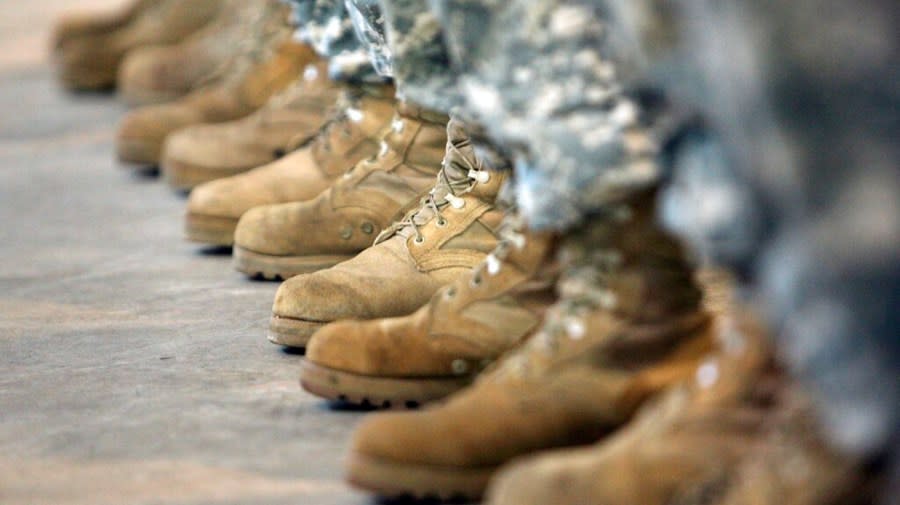US and Iraq to begin talks on future of American troops in country

U.S. and Iraqi officials will launch a bilateral working group in the coming days to discuss the future of the roughly 2,500 American troops in Iraq, which has become a point of contention following clashes in the Middle Eastern country with Iranian-backed militia groups.
The U.S.-Iraq Higher Military Commission (HMC) meetings will begin soon as part of a planned process both countries committed to last August and is not connected to recent tensions with Iranian-backed militia groups, the Pentagon said Thursday.
During the talks, representatives will discuss how the war against the extremist Islamist group ISIS can transition to a new stage, based on the existing threat from ISIS and the capabilities of the Iraqi security forces trained by U.S. troops, along with operational requirements.
“Expert working groups of military and defense professionals will examine these three factors and advise the HMC on the most effective evolution of the D-ISIS Coalition mission, ensuring that ISIS can never resurge,” Defense Secretary Lloyd Austin said in a statement.
A senior U.S. defense official said both sides were committed “to carefully revisit the question of timing and to ensure that HMC is comprehensive, efficient and a professional process.”
“We’re going to continue this strong security partnership to advance our shared objectives and interests. HMC will help us determine what form that partnership will take,” the official said. “Iraqi stability and sovereignty are essential for regional peace and security.”
While Washington and Baghdad have held previous bilateral talks, the discussions have seen renewed importance following the breakout of war between Israel and Hamas in October, with the U.S. now battling Iranian-backed militia groups across the Middle East.
In Iraq, the clashes have sparked major concerns from the government. Iraqi Prime Minister Mohammed Shia Al-Sudani has condemned both Iran and the U.S. for strikes this month in his country.
On Wednesday, al-Sudani said during a national security meeting that recent attacks in Iraq “constituted a flagrant violation of Iraqi sovereignty.”
He also stressed “the need to take all necessary political, diplomatic and security measures to protect Iraq’s sovereignty and maintain its security.”
The U.S. is in Iraq at the invitation of the Iraqi government to train and assist local forces to combat ISIS. The government first asked Washington to assist with the fight against ISIS in 2014 after the group rose to power in Iraq.
If Iraq were to ask the troops to leave, the U.S. would have no choice but to leave without breaking the relationship with Baghdad.
Iraq says it now has the ability to deter ISIS, which has been largely defeated since it swept across Iraq in the mid-2010s. But the group still maintains sleeper cells and was responsible for a deadly bombing in neighboring Iran this month that killed dozens of people.
ISIS no longer poses a major threat to the region and is largely “suppressed,” a senior U.S. defense official said, but the official stressed it was vital to ensure Iraq maintains the capabilities to continue suppressing them.
“They’re in a complex terrain and mountain environments, or in some of the less governed spaces in the desert in Syria or in some of the places in central Iraq,” the official said of ISIS militants. “Forces are constantly working with their intelligence platforms to detect and track these small ISIS cells.”
For the latest news, weather, sports, and streaming video, head to The Hill.


